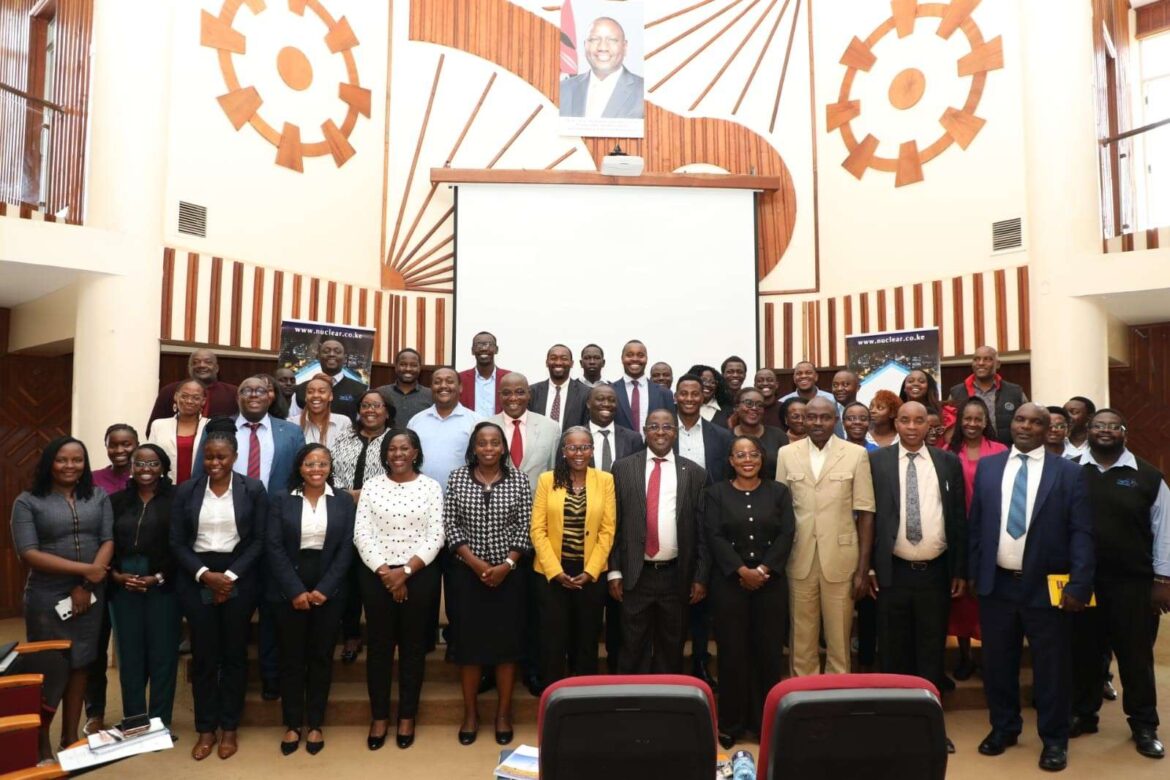The Nuclear Power and Energy Agency (NuPEA) of Kenya held a high-level Stakeholder Validation Workshop on the Four Nuclear Safety Conventions at the Kawi House Auditorium. The workshop aimed to validate and discuss the integration of four key international nuclear safety conventions into Kenya’s national legal framework — a significant step toward the country’s accession to these global agreements.
National Commitment to Nuclear Safety
The event was officially opened by CS Justus Wabuyabo, Chief Executive Officer of NuPEA, who reaffirmed Kenya’s strong commitment to international nuclear safety standards. In his keynote address, he emphasized the critical importance of acceding to the conventions to align Kenya’s nuclear energy development with global best practices. He reiterated NuPEA’s legal mandate under the Energy Act to spearhead a safe, secure, and sustainable nuclear power programme, while developing the necessary legal and policy infrastructure.
He also acknowledged the valuable support of the International Atomic Energy Agency (IAEA) and national institutions in maintaining nuclear safety as a top national priority.
Multisectoral Stakeholder Engagement
The workshop brought together key stakeholders from across Kenya’s nuclear and disaster management landscape, including:
- Kenya Nuclear Regulatory Authority
- National Disaster Management Unit
- Office of the Attorney General
- Office of the Director of Public Prosecutions
- Ministry of Foreign and Diaspora Affairs
- State Department of Energy
- Kenya Bureau of Standards (KEBS)
- Nuclear Society of Kenya
- Eastern Africa Association for Radiation Protection
- KenGen
These stakeholders engaged in meaningful dialogue on how best to incorporate the four nuclear safety conventions into national legislation.
Focus on Four Nuclear Safety Conventions
Presentations from CS Serah Esendi Okumu, Director of Legal and Regulatory Services at NuPEA, and Ms. Judit Silye from the IAEA Office of Legal Affairs, provided detailed insights into the nuclear safety conventions and their legal implications:
- Convention on Nuclear Safety (CNS)
A binding international treaty requiring parties to maintain high safety standards in nuclear installations and operations. - Convention on Early Notification of a Nuclear Accident
Establishes a system for prompt notification of nuclear accidents that may have transboundary radiological consequences. - Convention on Assistance in the Case of a Nuclear Accident or Radiological Emergency
Provides a framework for international cooperation in emergency response to minimize harm to people, property, and the environment. - Joint Convention on the Safety of Spent Fuel Management and the Safety of Radioactive Waste Management
Ensures long-term safety in the handling of spent fuel and radioactive waste, safeguarding human health and the environment.
Strengthening Legal and Policy Foundations
As Kenya advances toward a nuclear-powered future, NuPEA’s role under Section 56 of the Energy Act 2019 becomes central. The agency is tasked with proposing relevant policies and legislation to support nuclear power development and to ensure robust compliance with international safety obligations. The workshop served as a critical forum for building consensus and sharing insights to inform this process.
Next Steps: Accession and Domestication
Following the validation workshop, NuPEA and its stakeholders outlined a roadmap toward formal accession and domestication of the conventions. This includes strategic consultations with relevant ministries and parliamentary actors to support legislative reforms that reflect international nuclear safety standards.
A Forward-Looking, Safe Nuclear Pathway
The successful organization of this workshop marks a significant milestone in Kenya’s nuclear journey. With strong institutional support, stakeholder engagement, and alignment with IAEA standards, Kenya is well-positioned to develop a transparent, well-regulated, and future-ready nuclear energy programme.
